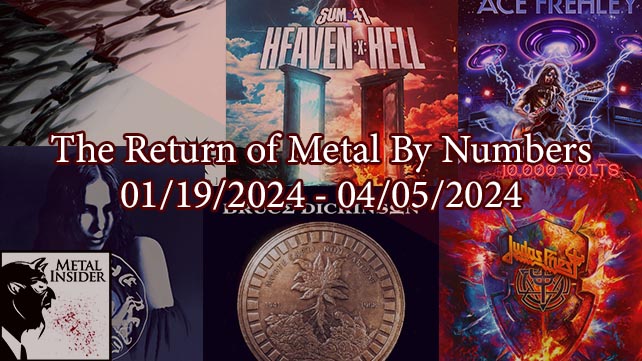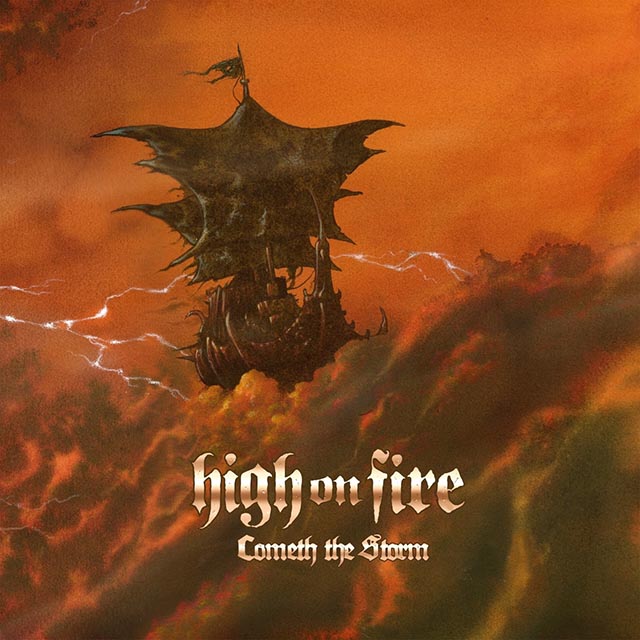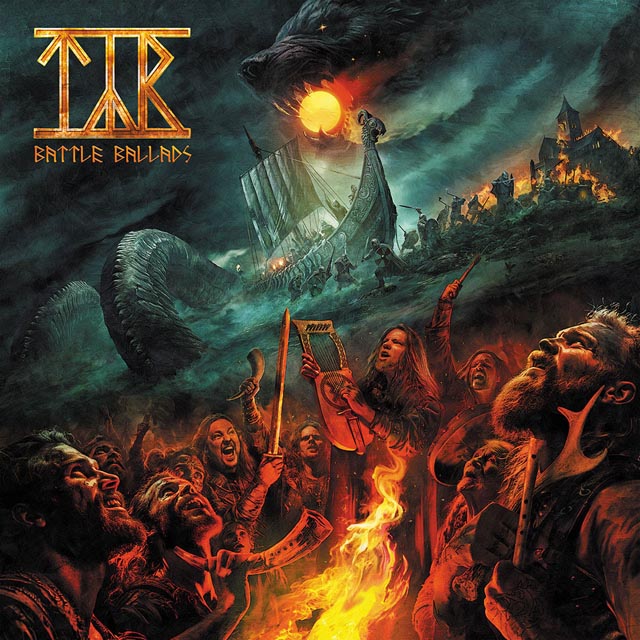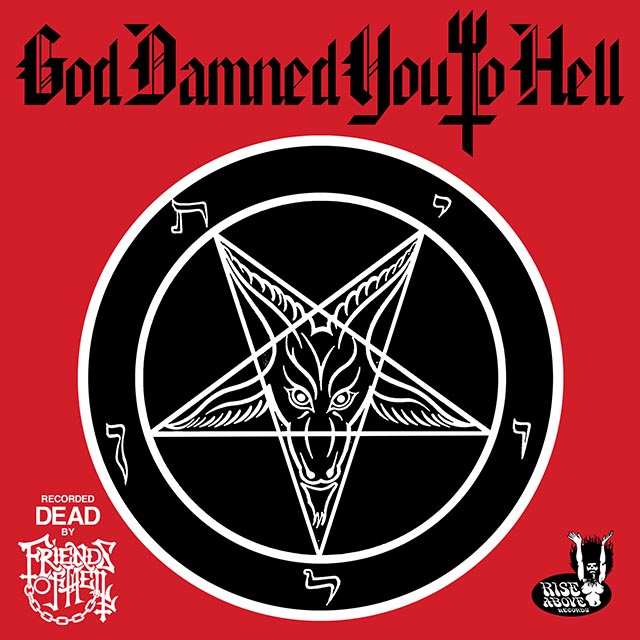 Earlier this week, it was revealed that Century Media is working on getting acquired by one of the big three major labels (Sony Music, Warner Music Group, and Universal). While he wouldn’t comment on how negotiations were going, label founder Robert Kampf did supposedly confirm his interest in an acquisition in order to “give Century Media a stronger footing at a time of diminishing worldwide sales of sound recordings.” Rumor has it that Sony has taken the lead in closing a deal, but who knows when (or even if) a final deal will be made. While Vince over at MetalSucks wrote an insightful think piece today, we decided to take a moment to weigh the pros and cons of a major label acquiring Century Media.
Earlier this week, it was revealed that Century Media is working on getting acquired by one of the big three major labels (Sony Music, Warner Music Group, and Universal). While he wouldn’t comment on how negotiations were going, label founder Robert Kampf did supposedly confirm his interest in an acquisition in order to “give Century Media a stronger footing at a time of diminishing worldwide sales of sound recordings.” Rumor has it that Sony has taken the lead in closing a deal, but who knows when (or even if) a final deal will be made. While Vince over at MetalSucks wrote an insightful think piece today, we decided to take a moment to weigh the pros and cons of a major label acquiring Century Media.
Zach: There are two big pros to this acquisition happening; an increase in distribution reach and a decrease in cost (well, at least in theory, I guess). Century Media has done fine with maintaining both, but those are difficult things for any independent label to do. So having a major label helping with both is only a benefit.
The con to this acquisition is… well, do you really think owning a metal label is a good investment? Sure, Century Media had a “successful” past year, and are home to critical darlings like At The Gates and Napalm Death. But let’s be honest, their roster doesn’t exactly scream profitability. Ok, so metal in general isn’t the most profitable genre (somewhat proving my point), but Lambgoat did a little data digging, and found that these are the label’s top selling releases to date (in rough order):
- Lacuna Coil – Comalies
- Shadows Fall – War Within
- Lacuna Coil – Karmacode
- In This Moment – Blood
- Shadows Fall – The Art Of Balance
- Lacuna Coil – Shallow Life
- Arch Enemy – Doomsday Machine
- Suicide Silence – Cleansing
- In This Moment – Beautiful Tragedy
- Iced Earth – Something Wicked This Way Comes
The most recent addition to the above list is In This Moment’s Blood, which sold 20,000 copies in its first week back in 2012 and has sold over 227,000 since Feb 2014.
I’m not saying that Century Media shouldn’t continue their efforts to get acquired. Far from it, they absolutely should. But could you blame the major labels if they weren’t rushing to the alter to marry Century Media? They’d be investing a lot of resources into something that likely would provide little return (least in the immediate future).
Chris: I see pros and cons all over this, but for me, it really boils down to two things – metal exposure and metal tradition. Metal exposure is an obvious pro, because bringing metal to a major label and giving them the higher level of funding and support that only a major can offer is all upside. Artists on the roster that are already established, high-selling commodities (Lacuna Coil, In This Moment, At the Gates, etc.) will be able to grow their audiences even more. Meanwhile, the label’s up-and-coming artists that are drawing attention (The Agonist, Butcher Babies, Otherwise, etc.) will get a major boost that they would have had to struggle for under normal circumstances.
Metal tradition, though, is a big con of this acquisition attempt. Of the primarily metal labels of the past few decades, Century Media, Metal Blade, and Nuclear Blast are the only ones left that have stuck with metal and added to its tradition as time has gone on. Sure, there are newer labels like Sumerian and eOne that are doing lots of good for metal, but they don’t have the established history or reputation that a label like Century Media has. For Century Media to move their home to a major label immediately taints their credibility as a metal-focused label, because talent suddenly becomes far less important than potential sales when it comes to potential signings. A band that might be the next Napalm Death would get passed over because their sales numbers would not justify a contract, while a clone of Asking Alexandria would be much more likely to get signed because they can be sold to a large audience. The possibility of Century Media’s legacy being damaged by deals like that is very high in the current environment.
If it goes through, the acquisition of Century Media by a major label would likely play out in a similar manner to what happened when Roadrunner was absorbed into Warner Bros – the biggest sellers on the label (Slipknot, Killswitch Engage, The Devil Wears Prada) and a few “hyped” artists (Opeth, Gojira, Kvelertak) were kept on the actual Roadrunner roster, while the rest were either released or absorbed into the Warner fold. If Century Media gets bought out by Sony or another major label, expect a similar outcome for their vast roster. While this would certainly work out well for other metal labels, the artists themselves would suffer to some degree from this, and that’s the last thing we need right now in the metal community.
Bram: Like probably everyone else here, I’m of two minds. Century Media have been building their brand over the last few years, branching out into more commercial music with Another Century. Meanwhile, as heavy as some of their acts are, Lacuna Coil and In This Moment are commercial bands. In This Moment in particular have been building to a more commercial band over the last few albums, and if Century was with a major, there’s no doubt that the band would would have remained there.
Also, it’s not like Roadrunner was the only label to ever be absorbed by a major. Def Jam/Def American was absorbed by several majors (Geffen, Sony, Island), and you don’t hear about Slayer selling out. Earache Records was even absorbed by Columbia in the early ’90s. It’s not like any of them were rousing success stories (see Entombed and Wolverine Blues), but they did get the labels in front of a lot of people. I think that if Century is able to maintain some degree of autonomy on a major, then their more commercial bands might be able to flourish with a major label promotion and marketing staff behind them. That’ll hopefully give them enough revenue and leeway to continue to sign heavy bands. But the autonomy thing is a big if.
Chip: I’m old enough to remember other indie metal labels (i.e. Earache) making the foray into the world of major labels. I also have first-hand knowledge of working for an entertainment/news company that was run by a much larger corporate entity that was stationed 1000 miles away. Here’s the thing to remember in situations like this: whatever the ‘mother ship’ wants, it gets. Period. So let’s forget the pipe dreams of having a mini-label within the label that’s going to house the more extreme acts. Not going to happen because it’s just not financially feasible. If a major label does come into the picture what will most likely happen is they will cherry pick the bands they feel are financially viable and able to pitch to an audience outside the metal underground – Lacuna Coil, Butcher Babies, etc. – and the rest will either have their contracts terminated or be sold off to the highest bidder. Do you know why Earache’s match-up with a major label didn’t work? Because bands like Carcass, Morbid Angel, and Godflesh were not marketable to mainstream audiences, no matter how popular metal was at the time. I’d argue that the metal underground is just as strong today as it has ever been. But can you see a major label pitching the new Marduk record or the new Karyn Crisis project to mainstream press and radio? Not in North America. Even bands that we metalheads think are “accessible” like At The Gates, honestly are not to the average 15-25 year old music fan and a major label will recognize that for what it’s worth because at the end of the day it comes down to how many units they can move.
Where some of the more extreme acts may win in this though is in other markets outside the U.S. Places like Europe, Japan, South America, etc. If a band has a worldwide deal with Century Media that could potentially carry over to a major label. So where a band like Marduk might be searching for a new label to distribute their album in the States they may all of a sudden find major label support in other markets that have historically been more open to extreme acts on their radio charts and mainstream press. We’ve seen this before and sometimes don’t even realize it. Satyricon was signed to EMI, and beginning with their Volcano album, European and other non-North American distribution was handled by labels like Capitol and Columbia. So while there have sometimes been delays in releases here in the U.S. while they look for a label to distribute them, they aren’t suffering as they are walking away with Norwegian Grammy nominations and headlining major festivals. In other words, it’s all relative and no matter what label bands wind up on here in the States there will still be potential opportunities in the worldwide metal markets that present themselves.
Matt A: I have a feeling that there is going to be a lot of agreeing views on both the pros and cons of this topic. And so far, there’s really not much I can personally add to what’s already been said. I do agree that any time a smaller label is absorbed by a larger, more major label, that’s always going to yield more exposure and promotion for just about the entire band roster. But, as Zach and Chris mentioned, since metal isn’t exactly the cash cow that it once was, how the management of current bands and signing of new bands is what concerns me most. It’s not uncommon to see any label, regardless of how big or successful, play favorites within their own roster. Whether it’s through personal differences between the bands and label, a difference in how bands or received in markets, or knowledge that some bands will sell more than others, I think we can all agree that we’ve seen some bands on a label get more of a push for publicity or promotion than others within the same label. It begs the question, “Why spend the time and finances to promote a band – let alone sign them in the first place – if you have little to no confidence that they will do well?”
Chris’ point in particular makes me hypothesize how a larger parent label would want to handle the smaller or more underground bands. In the past, Century Media had tried to continue to manage their own releases by genre and popularity with Century Black (for rare black metal albums) and Abacus Records (for metalcore bands). Neither of these efforts lasted longer than a few years, but similar to the divide of the artist roster between Warner Bros. and Roadrunner, I think that we could see a split of its own; with the major label signing the more popular, successful, or “hyped” bands, leaving the more underground or “legit metal” bands under the Century Media umbrella. This alone could have pros and cons as well. Those underground or extreme bands maintain their “legit” credibility among metalheads, but at the same time, more money would be invested in bands that are more accessible to wider audiences and therefore could move more units.
That being said, that same dividing up of bands could give both the major label and Century Media an opportunity to have better management control over their own respective rosters as well. Sure, more money and attention may go into the bigger artists by comparison to the smaller ones, but those same smaller bands could still see more support and attention since Century may not have to focus on the bigger artists themselves as well. Should this actually occur, I think we could see a more recent Century signing like Buckcherry go to the larger label while Century retains At The Gates. Or, for another example, four-album strong The Agonist could gain some more ground based (hopefully) more on their music through Century, while relative newcomers Butcher Babies could be snatched up for more marketability for their… um, shall we say “assets” (more accurately, “gimmick” which has nothing to do with their music). Then comes the possibility of either respective label taking more control on album production for an artist. In which case, you might want the more underground and extreme bands to NOT be acquired by the larger label for fear of the dreaded “sellout album.” But instead, remain in a more well-supported underground status, allowing them to naturally flourish.






